| Weight | 1 lbs |
|---|---|
| Dimensions | 9 × 5 × 2 in |
| host | mouse |
| isotype | IgG |
| clonality | monoclonal |
| concentration | concentrate, predilute |
| applications | IHC |
| reactivity | human |
| available size | 0.1 mL, 0.5 mL, 1 mL concentrated, 7 mL prediluted |
rabbit anti-p16INK4a monoclonal antibody (ZR407) 6306
Price range: $160.00 through $528.00
Antibody summary
- Rabbit monoclonal to p16INK4a
- Suitable for: Immunohistochemistry (formalin-fixed, paraffin-embedded tissues)
- Reacts with: Human
- Isotype:IgG
- Control: HPV infected cervical squamous cell carcinoma
- Visualization: Cytoplasmic and nuclear
- 0.1, 0.5, 1.0 mL concentrated, 7 mL prediluted
rabbit anti-p16INK4a monoclonal antibody ZR407 6306
| antibody |
|---|
| Database link: human P42771 |
| Tested applications IHC |
| Recommended dilutions Concentrated 1:100-200 |
| Application Notes Positive control: HPV infected cervical squamous cell carcinoma |
| Immunogen Purified recombinant prokaryotic full length human p16INK4aprotein |
| Size and concentration 7 mL prediluted or 0.1, 0.5, 1.0 mL and concentrated |
| Form liquid |
| Storage Instructions 2-8°C for short term, for longer term at -20°C. Avoid freeze / thaw cycles. |
| Purity affinity purified |
| Clonality monoclonal |
| Isotype IgG |
| Compatible secondaries goat anti-rabbit IgG, H&L chain specific, peroxidase conjugated, conjugated polyclonal antibody 9512 goat anti-rabbit IgG, H&L chain specific, biotin conjugated polyclonal antibody 2079 goat anti-rabbit IgG, H&L chain specific, FITC conjugated polyclonal antibody 7863 goat anti-rabbit IgG, H&L chain specific, Cross Absorbed polyclonal antibody 2371 goat anti-rabbit IgG, H&L chain specific, biotin conjugated polyclonal antibody, crossabsorbed 1715 goat anti-rabbit IgG, H&L chain specific, FITC conjugated polyclonal antibody, crossabsorbed 1720 |
| Isotype control Rabbit polyclonal - Isotype Control |
| target relevance |
|---|
| Protein names Cyclin-dependent kinase inhibitor 2A (Cyclin-dependent kinase 4 inhibitor A) (CDK4I) (Multiple tumor suppressor 1) (MTS-1) (p16-INK4a) (p16-INK4) (p16INK4A) |
| Gene names CDKN2A,CDKN2A CDKN2 MTS1 |
| Protein family CDKN2 cyclin-dependent kinase inhibitor family |
| Mass 16533Da |
| Function FUNCTION: Acts as a negative regulator of the proliferation of normal cells by interacting strongly with CDK4 and CDK6. This inhibits their ability to interact with cyclins D and to phosphorylate the retinoblastoma protein. {ECO:0000269|PubMed:16782892, ECO:0000269|PubMed:7972006}. |
| Subellular location SUBCELLULAR LOCATION: Cytoplasm {ECO:0000269|PubMed:17658461}. Nucleus {ECO:0000269|PubMed:17658461}. |
| Tissues TISSUE SPECIFICITY: Widely expressed but not detected in brain or skeletal muscle. Isoform 3 is pancreas-specific. {ECO:0000269|PubMed:10445844}. |
| Structure SUBUNIT: Heterodimer with CDK4 or CDK6. Predominant p16 complexes contained CDK6. Interacts with CDK4 (both 'T-172'-phosphorylated and non-phosphorylated forms); the interaction inhibits cyclin D-CDK4 kinase activity. Interacts with ISCO2. {ECO:0000269|PubMed:16782892, ECO:0000269|PubMed:17658461}. |
| Post-translational modification PTM: Phosphorylation seems to increase interaction with CDK4. {ECO:0000269|PubMed:12529334}. |
| Involvement in disease DISEASE: Note=The association between cutaneous and uveal melanomas in some families suggests that mutations in CDKN2A may account for a proportion of uveal melanomas. However, CDKN2A mutations are rarely found in uveal melanoma patients.; DISEASE: Melanoma, cutaneous malignant 2 (CMM2) [MIM:155601]: A malignant neoplasm of melanocytes, arising de novo or from a pre-existing benign nevus, which occurs most often in the skin but may also involve other sites. {ECO:0000269|PubMed:10651484, ECO:0000269|PubMed:10874641, ECO:0000269|PubMed:11506491, ECO:0000269|PubMed:12019208, ECO:0000269|PubMed:14646619, ECO:0000269|PubMed:19260062, ECO:0000269|PubMed:7987387, ECO:0000269|PubMed:8595405, ECO:0000269|PubMed:8653684, ECO:0000269|PubMed:8710906, ECO:0000269|PubMed:9328469, ECO:0000269|PubMed:9425228}. Note=Disease susceptibility is associated with variants affecting the gene represented in this entry.; DISEASE: Familial atypical multiple mole melanoma-pancreatic carcinoma syndrome (FAMMMPC) [MIM:606719]: An inherited cancer predisposition syndrome characterized by an increased risk of developing malignant melanoma and/or pancreatic cancer. Mutation carriers within families may develop either or both types of cancer. Note=The disease is caused by variants affecting the gene represented in this entry.; DISEASE: Melanoma-astrocytoma syndrome (MASTS) [MIM:155755]: Characterized by a dual predisposition to melanoma and neural system tumors, commonly astrocytoma. {ECO:0000269|PubMed:11136714}. Note=The disease is caused by variants affecting the gene represented in this entry. |
| Target Relevance information above includes information from UniProt accession: P42771 |
| The UniProt Consortium |
Data
Publications
| pmid | title | authors | citation |
|---|---|---|---|
| We haven't added any publications to our database yet. | |||
Protocols
| relevant to this product |
|---|
| IHC |
Documents
| # | SDS | Certificate | |
|---|---|---|---|
| Please enter your product and batch number here to retrieve product datasheet, SDS, and QC information. | |||
Only logged in customers who have purchased this product may leave a review.
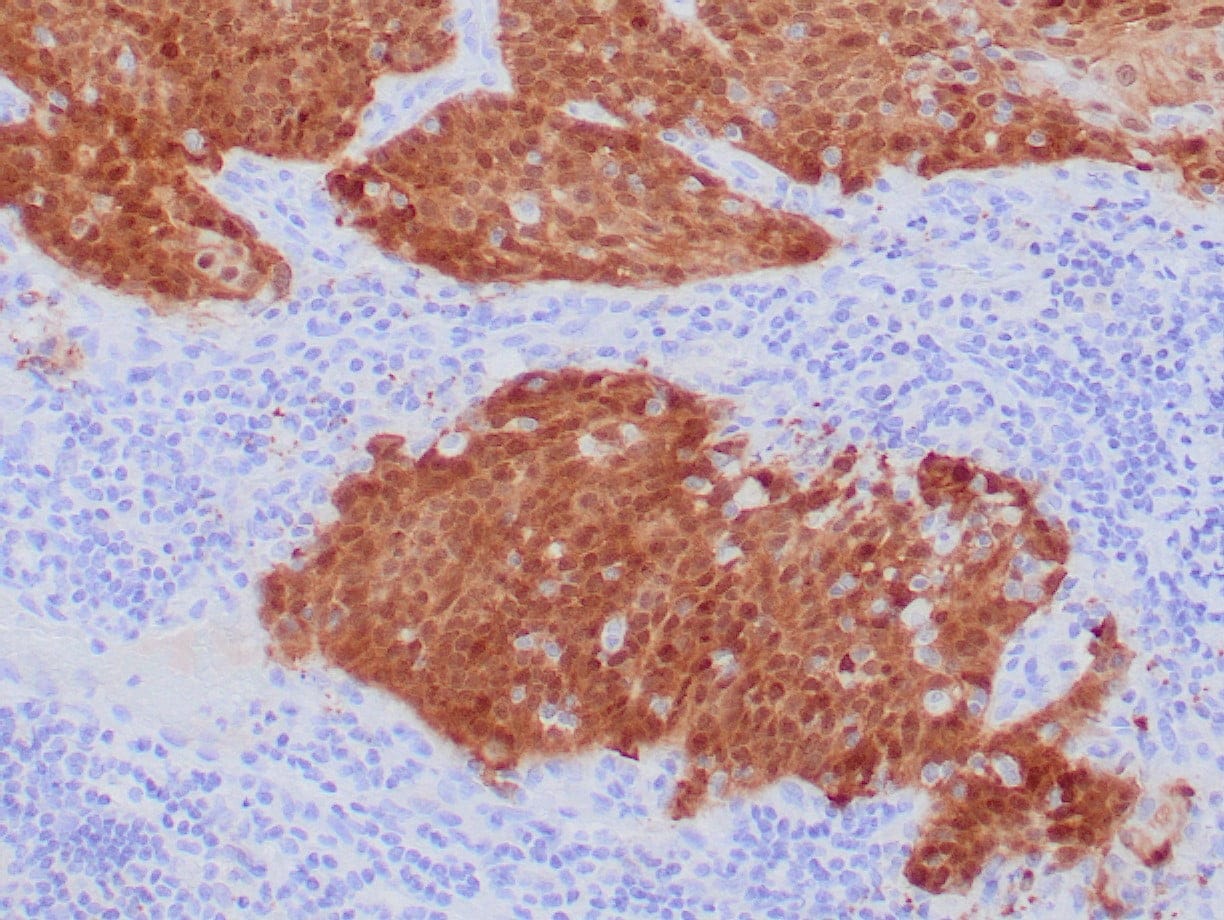
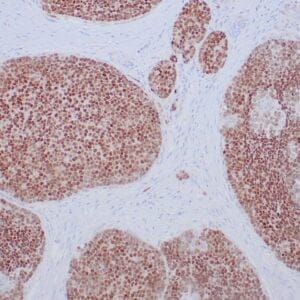
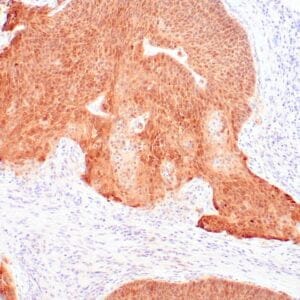
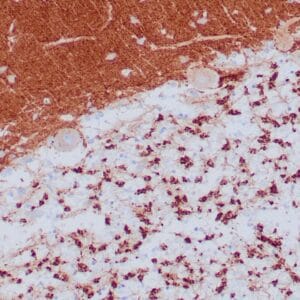

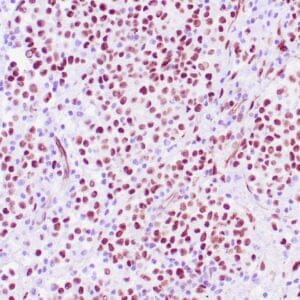
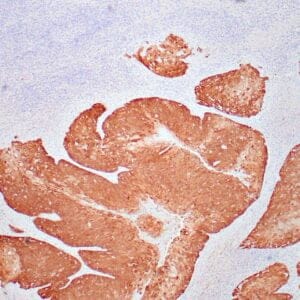

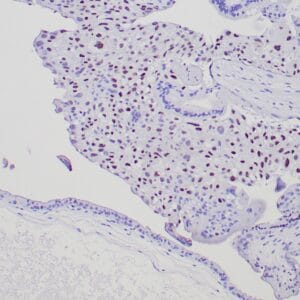
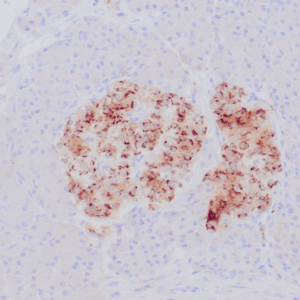
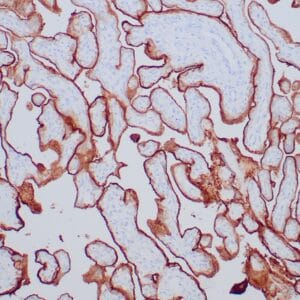
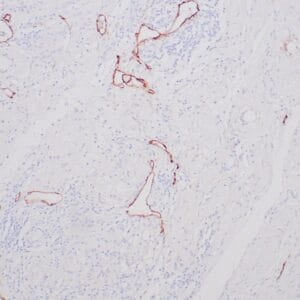
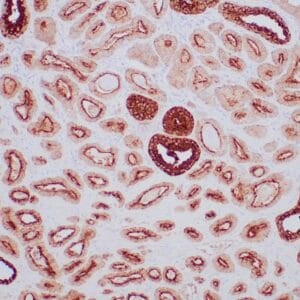
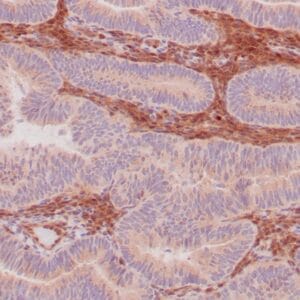

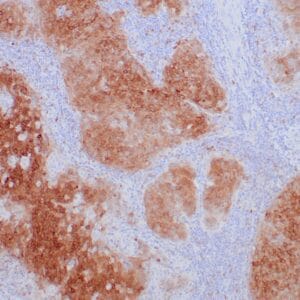
Reviews
There are no reviews yet.